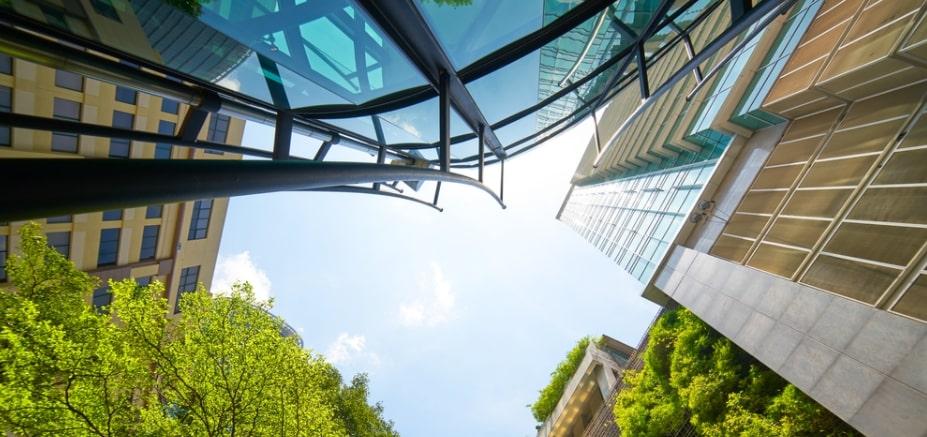Excellence in Design for Greater Efficiencies (EDGE) is a Green Building certification system developed by the International Finance Corporation (IFC). The goal of EDGE certification is to reduce the environmental footprint of the building sector, especially in emerging economies, in 3 main areas:
- Direct energy consumption
- Water consumption
- Energy footprint of construction materials
The building sector contributes to 19% of the global energy related emissions, and consume up to 40% of electricity. Since most of the power grid depend on fossil fuels, the environmental impact due to the energy consumption is very high. A recent study found that the building sector is expected to double by 2050, especially in emerging countries. This makes reducing the environmental footprint of the building sector extremely important.
Currently, the EDGE certification is available in 160 countries, and by February 2020 EDGE certified buildings saved up to 388 GWh of energy per year, and over 10 million cubic meters of water per year all around the world. The total of 9.4 million certified square meters globally, were able to prevent over 219,00 tons of carbon emissions per year.
How the EDGE Certification Works
As previously mention, the goal of the certification is to reduce the environmental impact of the building sector in 3 main areas. The certification has 3 levels of certification with each depending on how much the environmental impact is reduced.
The following summarizes the requirements for each certification level:
- EDGE Certified – 20% reduction in energy consumption, water consumption, and energy footprint in construction materials.
- EDGE Advanced – Same as EDGE Certified, but at least 40% reduction in energy consumption.
- ZERO Carbon – Same as EDGE Advanced, and the building must become carbon neutral by using 100% renewable energy and carbon offsets.
The certification is an excellent option for existing buildings, since any construction material installed at least 5 years ago is considered to have zero embodied energy. This allows building owners to shift their focus only on energy efficiency and water conservation. In existing building with no plans for major renovations, EDGE can be applied more easily than LEED.
EDGE certification includes 2 professional accreditations: EDGE Expert and EDGE Auditor. Both are involved in the certification process, but have different roles.
The EDGE Certification Process
The EDGE certification is managed globally by 2 main organizations: Green Business Certification Inc. (GBCI) and SGS-thinkstep consortium. Depending upon the location of the project, other organizations can be authorized for administering the EDGE certification locally. For a building to get the EDGE certification, there are 3 main parties involved in the process:
- The building owner’s design team for identifying measures to reduce the energy consumption, water consumption, and construction material energy footprint. The services of an EDGE Expert are recommended, but not mandatory.
- An authorized certification body such as GBCI, SGS-Thinkstep, or another organization with local approval.
- An EDGE Auditor, who reviews the proposed measures and serves as a mediator between the project owner and the certification body.
One important thing to consider is that the EDGE Auditor must be a neutral third party, meaning the role cannot be assumed by someone who is a part of the project team. In simple words, the EDGE Auditor cannot be someone with conflict of interest in the project.
EDGE Certification Cost
The certification requires a $300 registration fees regardless of who provides the EDGE certificate. The fee is per project and not per building, so sites with multiple buildings will not be more expensive to register. With respect to the certification itself, the rate of GBCI and SGS-thinkstep are different.
GBCI uses cost per square meter, which is summarized in the following:
|
Building Size |
Cost per Square Meter |
Minimum Fee |
|
0 to 25,000 m2 |
$0.27 |
$2,500 |
|
25,000 to 50,000 m2 |
$0.22 |
$6,750 |
|
Over 50,000 m2 |
NA |
$11,000 flat rate |
SGS-thinkstep uses flat fees that change depending on the project features. The following standard fees are based on residential project with up to 100 units and 3 dwelling types, or commercial project with a single-end use:
- Certification: $2,400
- Design audit: $4,000
- Final audit: $4,000
- Total: $10,400
The EDGE Auditor fee is negotiated directly between the project owner and the auditor.












No Comments